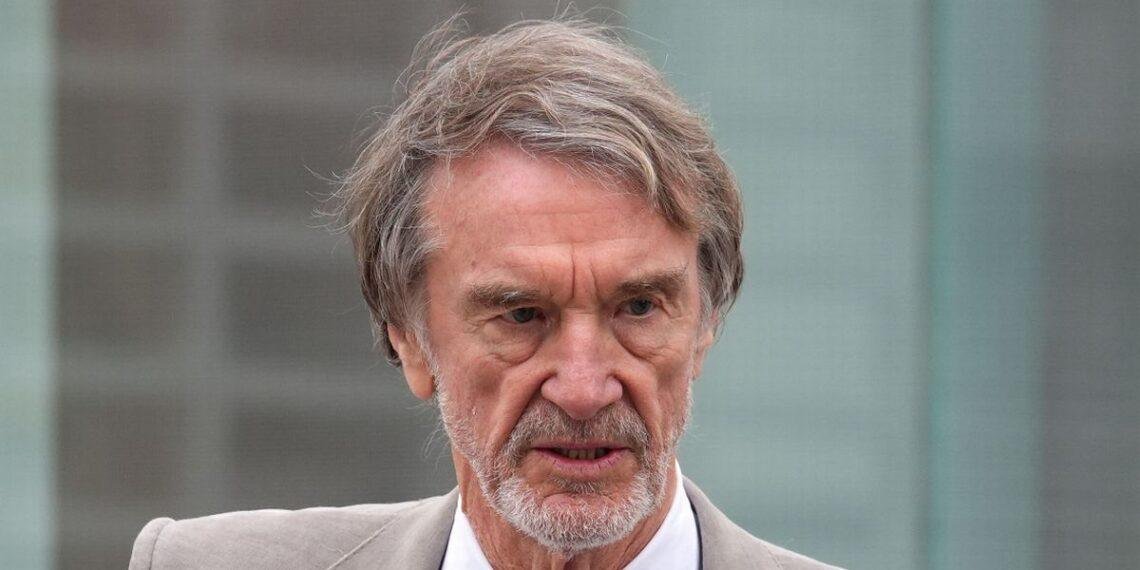Sir Jim Ratcliffe, the billionaire co-owner of Manchester United, has suffered a staggering loss of over £6.4 billion in just 12 months dropping more than a quarter of his total net worth, according to the latest Sunday Times Rich List. Once ranked as the fourth-richest individual in the UK, Ratcliffe now sits at seventh, with his wealth plunging from £23.5 billion to £17 billion.
The decline comes at a turbulent time for both Ratcliffe and Manchester United. Earlier this year, the 72-year-old petrochemicals tycoon made headlines when his company, Ineos Group, acquired a 27.7% stake in United for £1.25 billion, giving him sweeping control over the club’s football operations. But his tenure has been far from smooth.
Since the partial takeover, the Red Devils have faced a double blow: ticket price hikes that angered fans and two rounds of staff layoffs, all in a bid to manage the club’s finances. Ratcliffe defended these decisions during a revealing interview with the BBC in March, stating that without the cuts, Manchester United would have “run out of cash by the end of the year.”
Yet despite the financial tightening, United still announced plans in March to build a £2 billion state-of-the-art stadium near Old Trafford an ambitious project aimed at restoring the club’s global prestige. Ratcliffe has insisted that Ineos’ financial losses won’t derail these plans or the club’s operations, even as his petrochemical empire battles an industry-wide slump in Europe.
drastic moves to tighten its belt. In February, the company ended its high-profile sponsorship deal with New Zealand Rugby, followed by the termination of its partnership with Olympic legend Ben Ainslie, ending a six-year commitment to the Britannia America’s Cup sailing team.
Related Articles:
- Real Madrid snatch 2-1 victory over Mallorca in dramatic stoppage time
- Awoniyi recovers from induced coma after surgery
- “I’m not planning on resigning from Man united,” Amorim confirms
The company blamed “cost-saving measures” for the withdrawals, citing Europe’s “crippling energy costs,” “punishing carbon taxes,” and a deepening deindustrialization crisis on the continent. These factors, Ineos says, are forcing it to rethink its strategy.
While Ratcliffe’s business empire endures a rough patch, Manchester United’s season has also teetered on the edge. Sitting 16th in the Premier League with just two games left, United’s only hope for Champions League football next season lies in their upcoming Europa League final against Tottenham on Wednesday. A win would offer salvation and qualification.
Interestingly, while Ratcliffe’s fortune contracts, several top British athletes are seeing their wealth surge. Rory McIlroy now tops the Sunday Times 40 Under 40 Rich List, having added £35 million to his name, bringing his total to £260 million, thanks in part to his historic Masters win last month, completing a career Grand Slam.
Anthony Joshua still ranks high despite a recent loss, placing 24th with £195 million, while Sir Andy Murray, who hung up his racquet in August, holds £110 million, landing at 35th. Meanwhile, Harry Kane, fresh off his first-ever major trophy with Bayern Munich, has jumped by £25 million, reaching £100 million and a joint-38th spot.
The contrast between Britain’s rising sports millionaires and the decline of one of its most influential industrialists paints a vivid picture of shifting fortunes in the UK’s elite circles. For Sir Jim Ratcliffe, it’s a season of tight calls, both in the boardroom and on the pitch.






